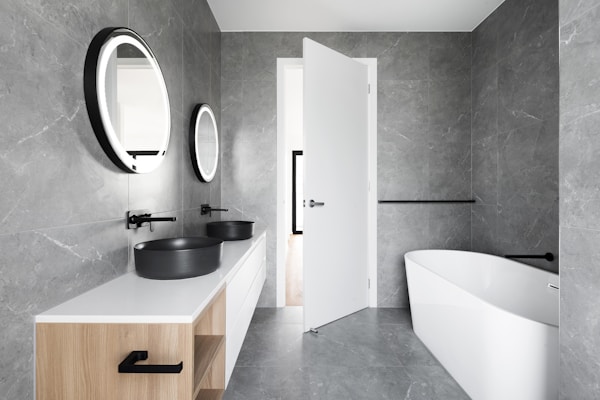Your home’s value is an important factor to consider, whether you are planning to sell your home or not. The value of your home can impact your financial situation in many ways, such as your ability to refinance your mortgage or take out a home equity loan. Additionally, your home’s value can affect your property taxes, insurance premiums, and overall net worth. Keep reading to learn how to increase your home’s value.
Renovate your bathroom.

Renovating your bathroom can significantly increase the value of your home, and one great way to do this is by installing walk-in tubs. These tubs are designed to provide a safer and more comfortable bathing experience for seniors and people with disabilities. They have a low threshold, which means you can easily step into the tub without having to lift your leg too high. This feature is especially beneficial for those who have mobility issues or are at risk of falling.
Another advantage of Pittsburgh walk-in tubs is that they come in various styles and sizes, making it easy to find one that fits your bathroom’s design and your specific needs. For example, you can choose a tub with features like hydrotherapy jets, heated surfaces, or even a built-in seat.
Take care of maintenance concerns.
Regular maintenance of your home is essential to ensure it retains its value over time. Neglecting maintenance concerns can lead to bigger and more expensive problems down the line, ultimately reducing your home’s value. One crucial aspect of home maintenance that should not be overlooked is chimney repair. Your chimney plays a vital role in keeping your home safe and warm during the colder months, but if it’s not properly maintained, it can become a major hazard. Chimney repairs can include fixing cracks, replacing damaged bricks, or installing a new liner to improve efficiency. By taking care of your chimney, you not only increase your home’s value but also ensure the safety and comfort of your family.
Landscape your front yard.

Landscaping your front yard can significantly increase your home’s value. A well-maintained lawn, garden beds, and trees can add visual appeal to your home, making it stand out from neighboring properties. Additionally, a properly landscaped front yard can help reduce energy costs by providing shade and insulation during the summer months. A well-designed and maintained front yard can also improve the overall curb appeal of your home, making it more attractive to potential buyers should you decide to sell in the future. Moreover, a well-landscaped front yard can create a welcoming environment that can enhance your quality of life and provide a relaxing retreat for you and your family to enjoy.
To landscape your front yard, consider the climate and soil conditions in your area, as well as the style and architecture of your home. Choose plants that thrive in your local climate and soil conditions, and select a design that complements your home’s style and architecture. Consider incorporating hardscaping features such as pathways, water features, and lighting to enhance the overall aesthetic appeal of your front yard. Be sure to maintain your landscaping by regularly watering, pruning, and fertilizing to keep it looking healthy and vibrant.
Add eco-friendly features.
Making eco-friendly upgrades to your home not only benefits the environment but also adds value to your property. Homebuyers are becoming increasingly environmentally conscious and are willing to pay more for homes that have eco-friendly features. These features can include anything from energy-efficient appliances to solar panels, insulation, low-flow plumbing fixtures, and energy-efficient windows. By adding these features to your home, you can increase its value and attract potential buyers who are looking for sustainable living options.
Apart from the potential monetary benefits, eco-friendly features also offer several other advantages. They can help you save money on energy bills, reduce your carbon footprint, and create a healthier living environment. For example, energy-efficient windows can prevent heat loss during winter and keep your home cool during summer, reducing the need for heating and air conditioning. Similarly, installing a low-flow showerhead can save thousands of gallons of water per year, leading to lower water bills and reduced water wastage.
Overall, increasing the value of your home is an important way to improve its appeal and potential resale value. Investing in home improvement projects, such as updating fixtures and appliances, painting, and landscaping, can help increase your home’s value and make it more attractive to potential buyers.

